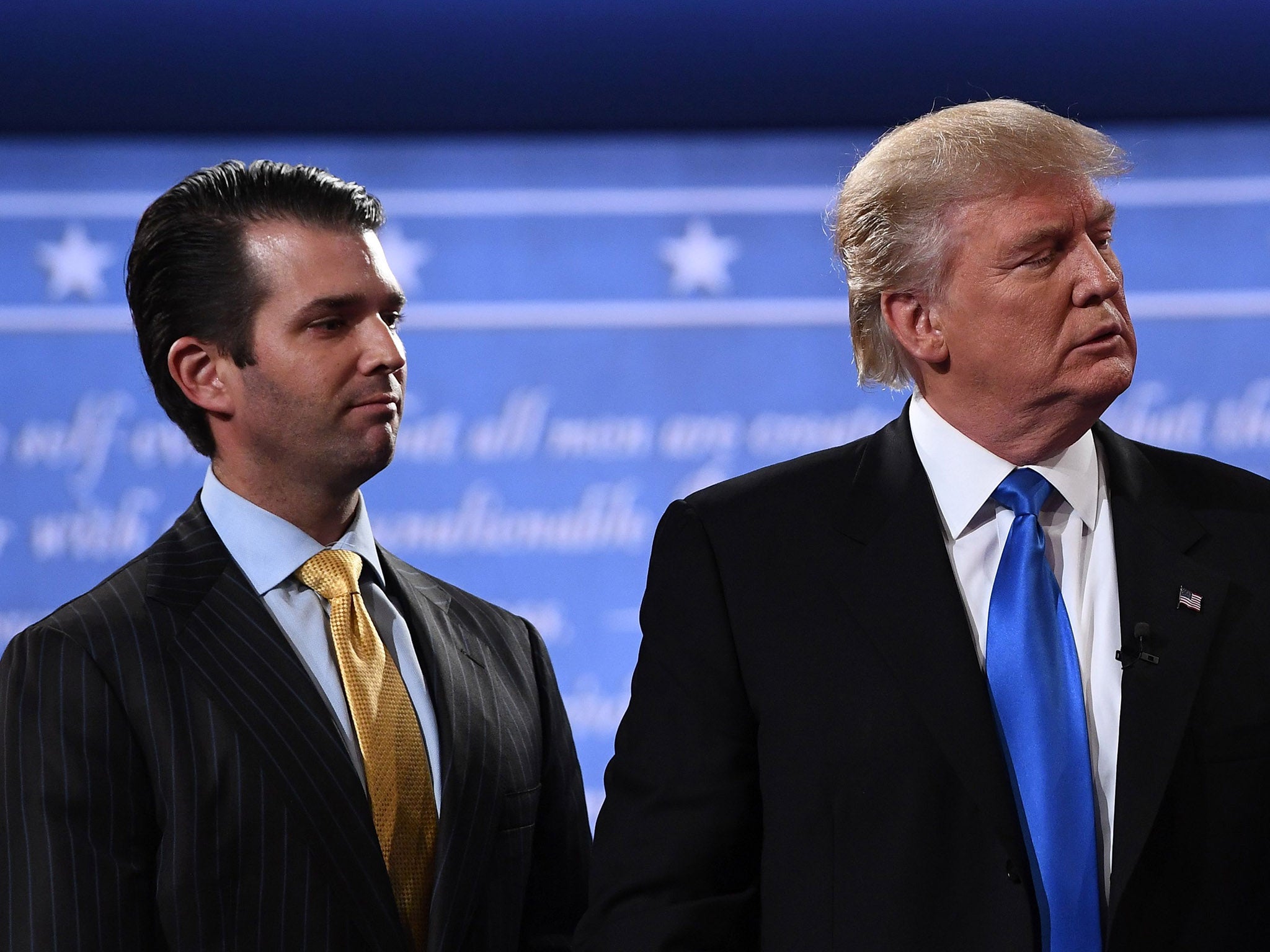Donald Trump Jr’s Halloween economics lesson was frighteningly ill-informed
Trick or treating can’t really teach kids about socialism, but it can make us realise the economic value of social norms


Donald Trump Jr sought to spoil the world’s enjoyment of Halloween last week with a dismal little economics lesson. The “first son” of the Trump White House tweeted out a picture of his daughter with her haul of trick or treat sweeties and added the words: “I’m going to take half of Chloe’s candy tonight & give it to some kid who sat at home. It’s never to [sic] early to teach her about socialism.”
As one Twitter user pointed out, receiving free sweets from kindly neighbours might be more accurately seen as socialism, whereas having half of one’s income extracted for no good reason might feel more like modern capitalism. But, leaving that debate to one side, this Halloween taught me a rather different economics lesson from the ideological bilge being pushed by Trump Jr; a more uplifting one.
When our family moved house to a new area of London two years ago we were hoping to go out trick-or-treating with our young children, but we didn’t know about local attitudes towards this somewhat divisive US cultural import. So we posted a message on a local social media site and asked whether any houses might be amenable to a knock on the door. Some of the replies were welcoming but others were as sour as a bag of Haribo Tangfastics. Comments along the lines of “why is it deemed acceptable nowadays for people to send their children out begging for sweets?” rolled in.
Yet this year things were a lot less fraught. We didn’t need to consult the internet before venturing out. The reason is that an informal system has taken hold in our area, whereby anyone with a jack-o’-lantern in their window, or “spooky” decorations festooning their house, is signalling that they are open to trick-or-treaters and have sweets available. Otherwise: do not disturb.

It’s an elegant solution. Parents no longer need to fret about a potentially abusive doorstep encounter. And those who despise trick-or-treating need not worry about it; there’s no need for them turn out the lights and draw the curtains.
In some respects one can read a libertarian lesson into this. No government regulation was needed to solve this Halloween coordination problem. It evolved organically. It shows that people and communities can informally solve their own problems. Formal regulation – banning trick-or-treating, or perhaps requiring people to formally opt out – might even make things worse, not better, something the late Nobel economics laureate Elinor Ostrom showed in her work on collective action.
Yet there’s also a deeper economic lesson about the importance of “norms”, or informal social rules, in underpinning co-operative economic behaviour, which Olstrom’s research also drew out. People, at least in my area, have generally absorbed these new Halloween norms and respect them. It’s now not socially acceptable to knock on random people’s doors on 31 October unless they’ve signalled they are amenable.
Norms underpin a great deal of economic and social behaviour – far more than libertarians and free-marketers often appreciate. Ideas of fairness and responsibility determine how we interact just as much as narrow financial self-interest.
And when those norms are ignored, or trampled upon – even when the behaviour in question does not break any regulation or law – people react badly. Consider the breach of the norms about the acceptable gap between executive pay in a company and the average worker in that firm, which I’ve written about here previously. Or consider the public anger when a multinational company with huge sales in a country pays zero corporation tax because it has used an entirely legal accounting ruse to shift its registered profits out of that country and into a tax haven.
Norms are often hard to define clearly. And they certainly shouldn’t be above criticism. Sometimes they can stifling or even discriminatory, as those who grew up in a socially conservative village often attest. They can be a treat, but they can also be a trick, depending on the context.
Such informal rules of behaviour are also not fixed in stone, but can shift and evolve over time, as our Halloween example clearly shows. But norms are undeniably economically important.
Join our commenting forum
Join thought-provoking conversations, follow other Independent readers and see their replies
Comments
Bookmark popover
Removed from bookmarks